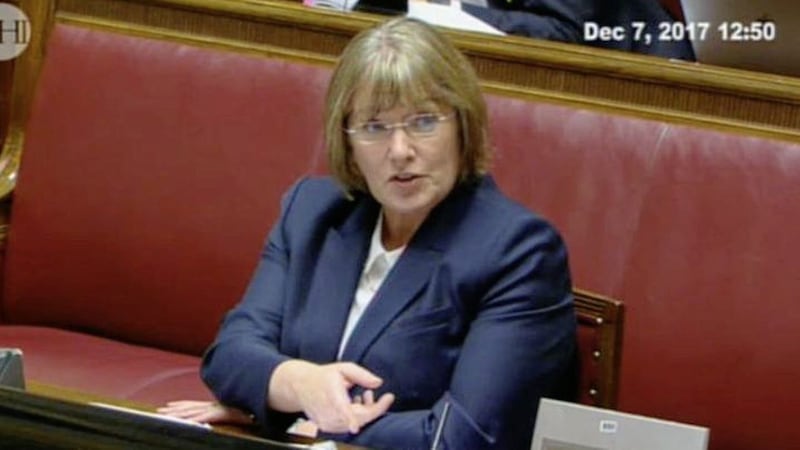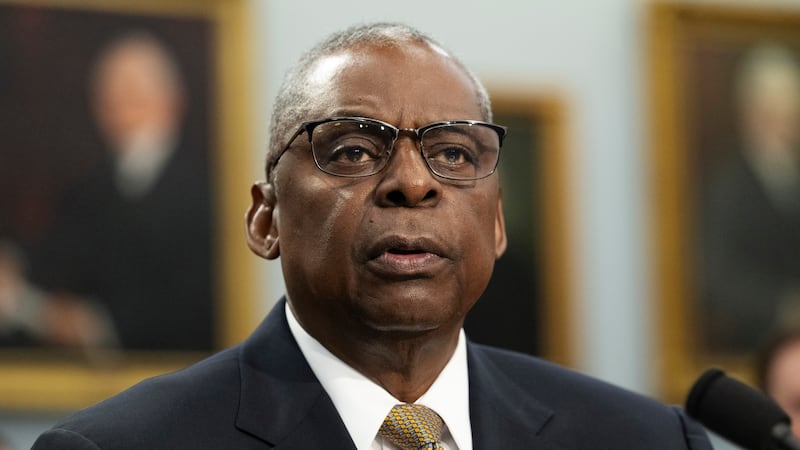THE senior official who headed up a Stormont department responsible for the controversial RHI scheme admitted yesterday she "didn't pick up" on a fatal flaw in the project.
Fiona Hepper, former head of the renewable energy team at the Department of Enterprise, Trade and Investment (DETI), told the RHI Inquiry it was "more than unfortunate" that the issue of over generous tariffs had not been spotted.
But the civil servant said her team had challenged consultants who carried out an economic appraisal and set tariff rates.
During a full day of evidence, Ms Hepper said her officials had questioned the assumptions underpinning a report by external consultants, as best they could, with the experience they had.
"We pushed this as far as we could with our knowledge and it's more than unfortunate that we did not pick up the error," she said.
"I didn't pick it up and the whole scrutiny process didn't pick it up."
The public inquiry was set up after it emerged the scheme ran massively over budget, with a potential overspend of up to £700 million over the next 20 years as the fuel for heating systems cost less than subsidies paid.
Ms Hepper yesterday discussed how the external consultancy firm, Cambridge Economic Policy Associates (CEPA), had been brought in to advise on the heat scheme options.
She accepted DETI did not have the necessary economic expertise to set up the scheme, without the help of external consultants.
A CEPA report in 2011 assessed the heat scheme options, but a subsidy created what has been called a "perverse incentive" for firms to burn more fuel to generate more money.
Ms Hepper said her officials had worked through the tariff and thought it was "viable", but the expertise from the consultants had resulted in a calculation that was "wrong".
She rejected suggestions she had pushed the then enterprise minister Arlene Foster towards the RHI option, rather than a 'challenge-fund scheme'.
"I advised her along the lines of the two options and went through the costs and cost differences of each," she said.
"We talked through quite a number of issues that would become a feature in the business case and that would balance up the monetary and non-monetary."
She added: "I don't recall that I was anyway specific".
She said Mrs Foster expressed a preference at the end of their meeting, but would "reflect and come back". Ms Hepper said her submission to the minister had "absolute clarity" on the need for cost controls.
Inquiry panel member Dr Keith MacLean also questioned Ms Hepper if she had told Mrs Foster about the rising costs, which emerged between CEPA's draft and final reports.
"The costs that were being advised to you in this report, just one month later than the previous one, had gone up by almost a third, by £111m," he said.
He added it "must have set alarm bells ringing", but Ms Hepper said "I didn't go back to her on that".
Ms Hepper left her post in November 2013, a year after the scheme had begun, and said a public consultation was completed by Autumn 2013 - a "key part" of that work had been the cost control provisions.
"I left in the full understanding that they would be brought through to delivery in 2014," she said.
A review of the scheme was to begin in January 2014, where problems could have been identified, but it never happened.








